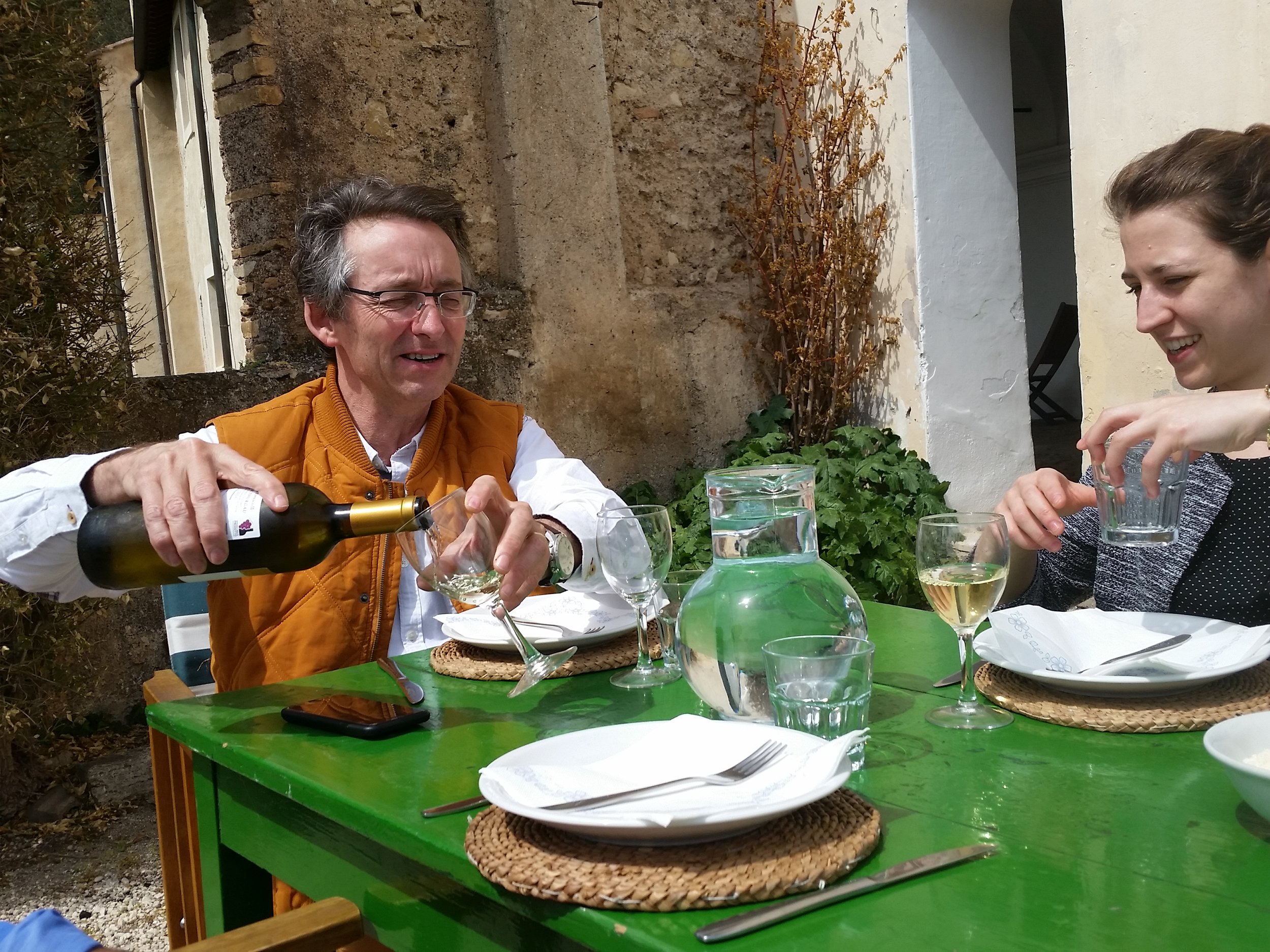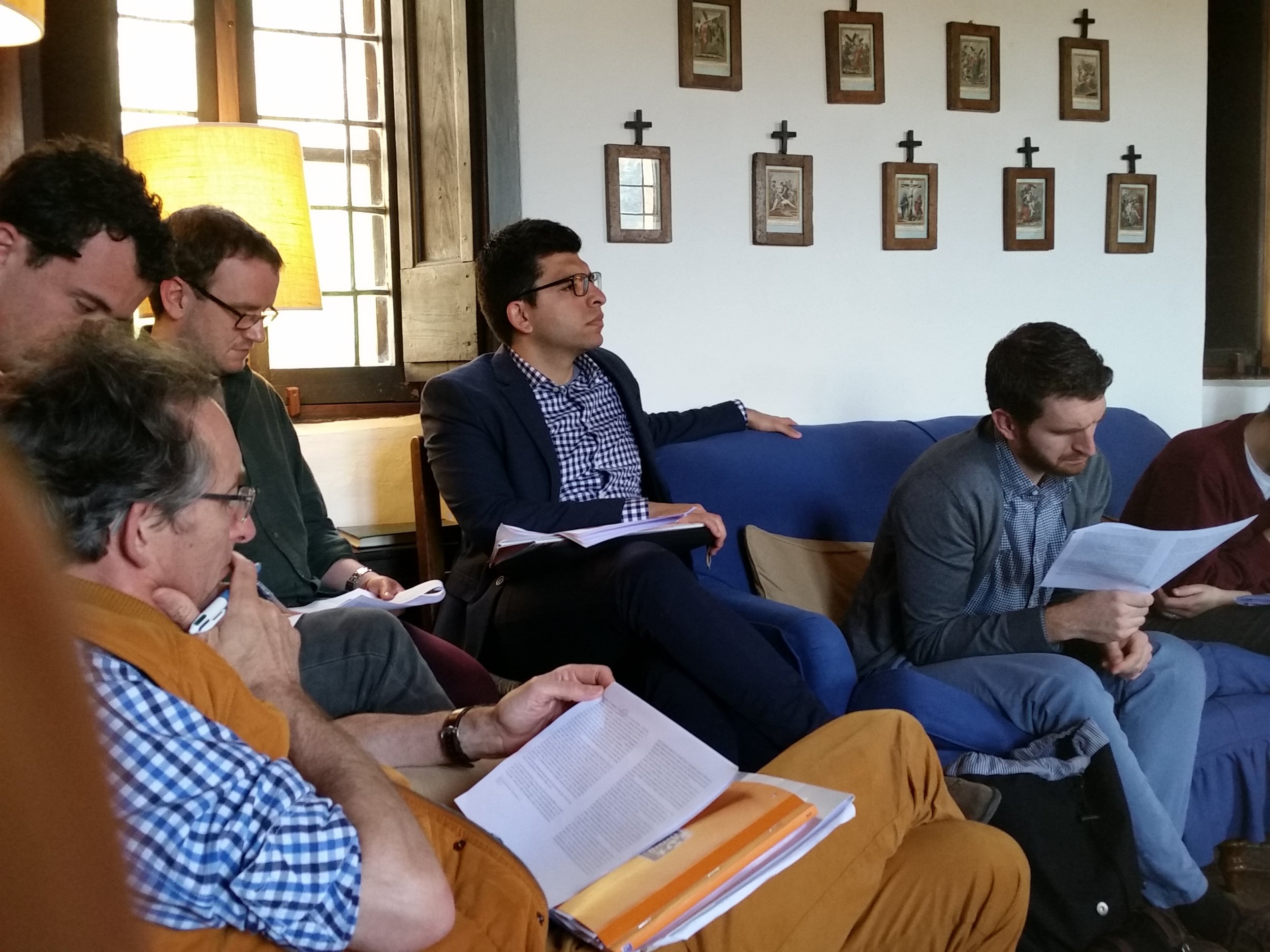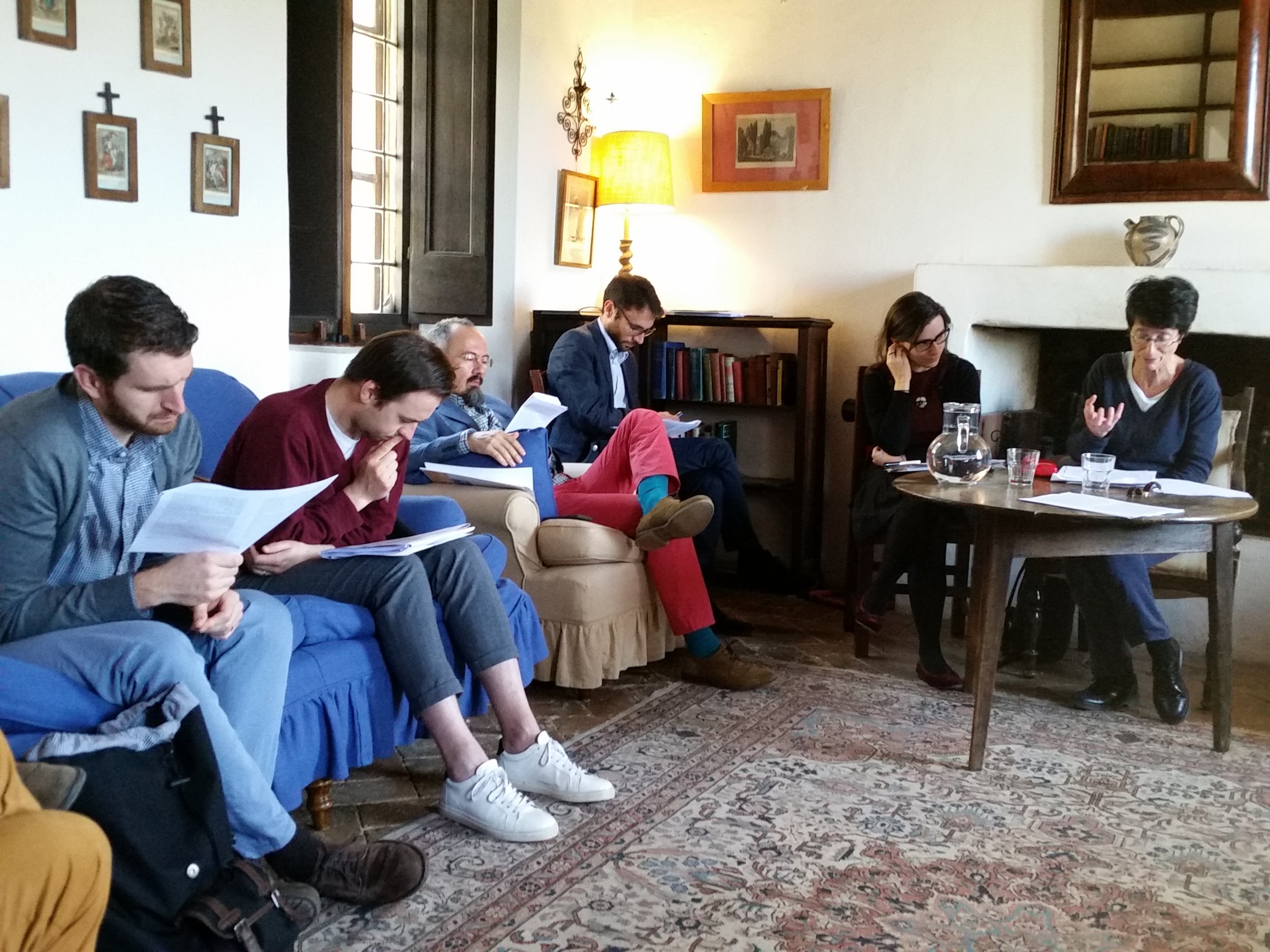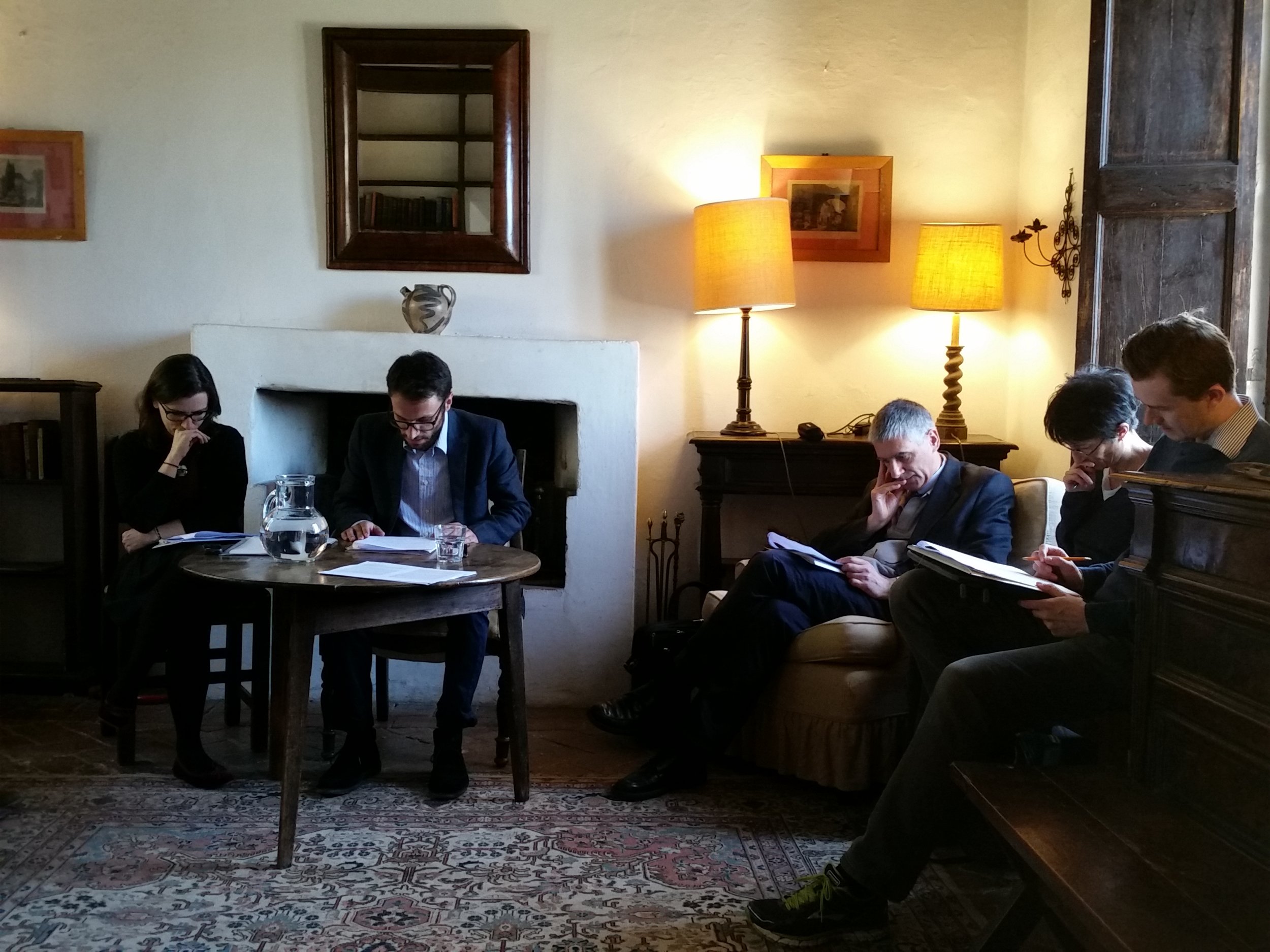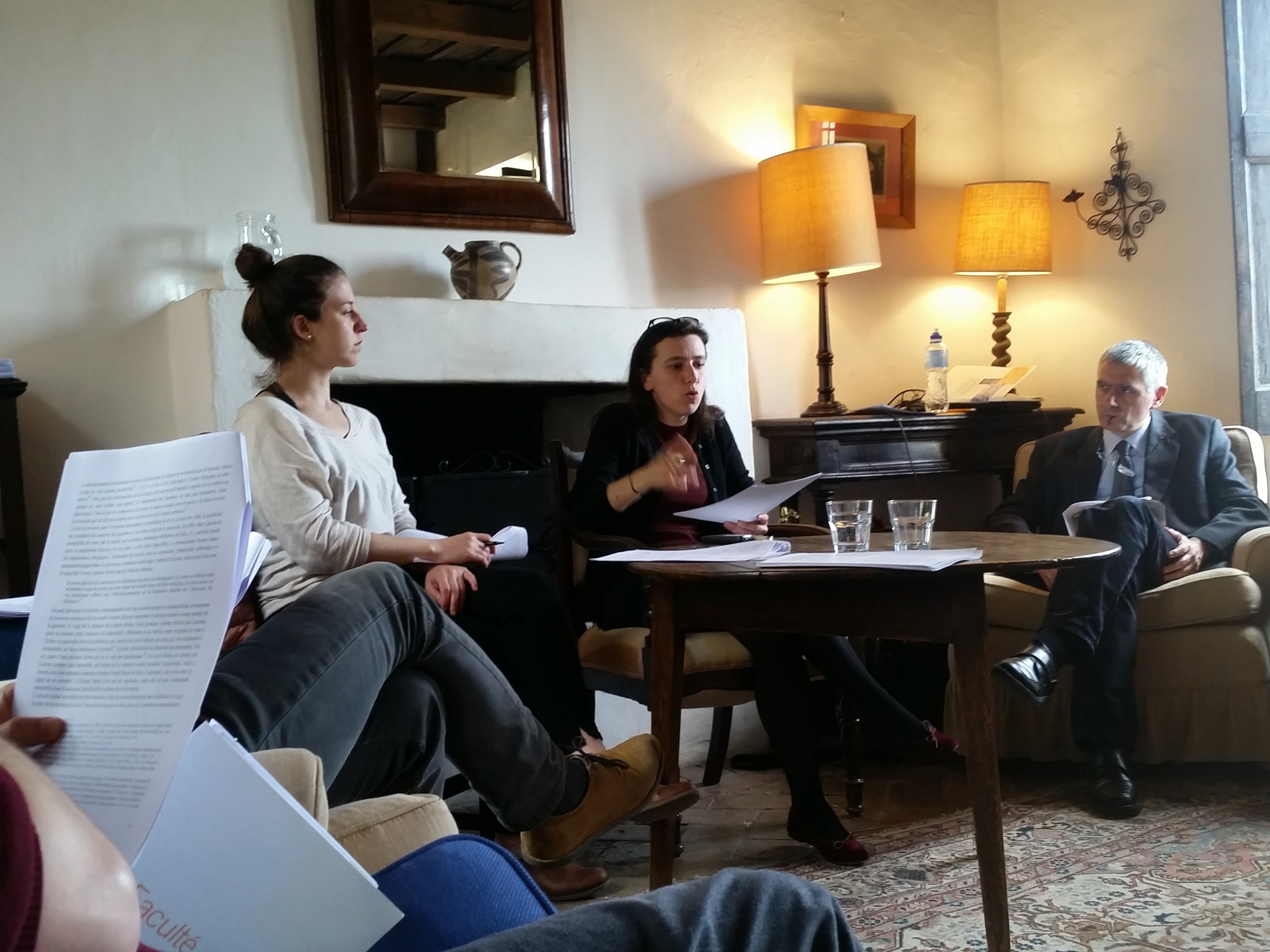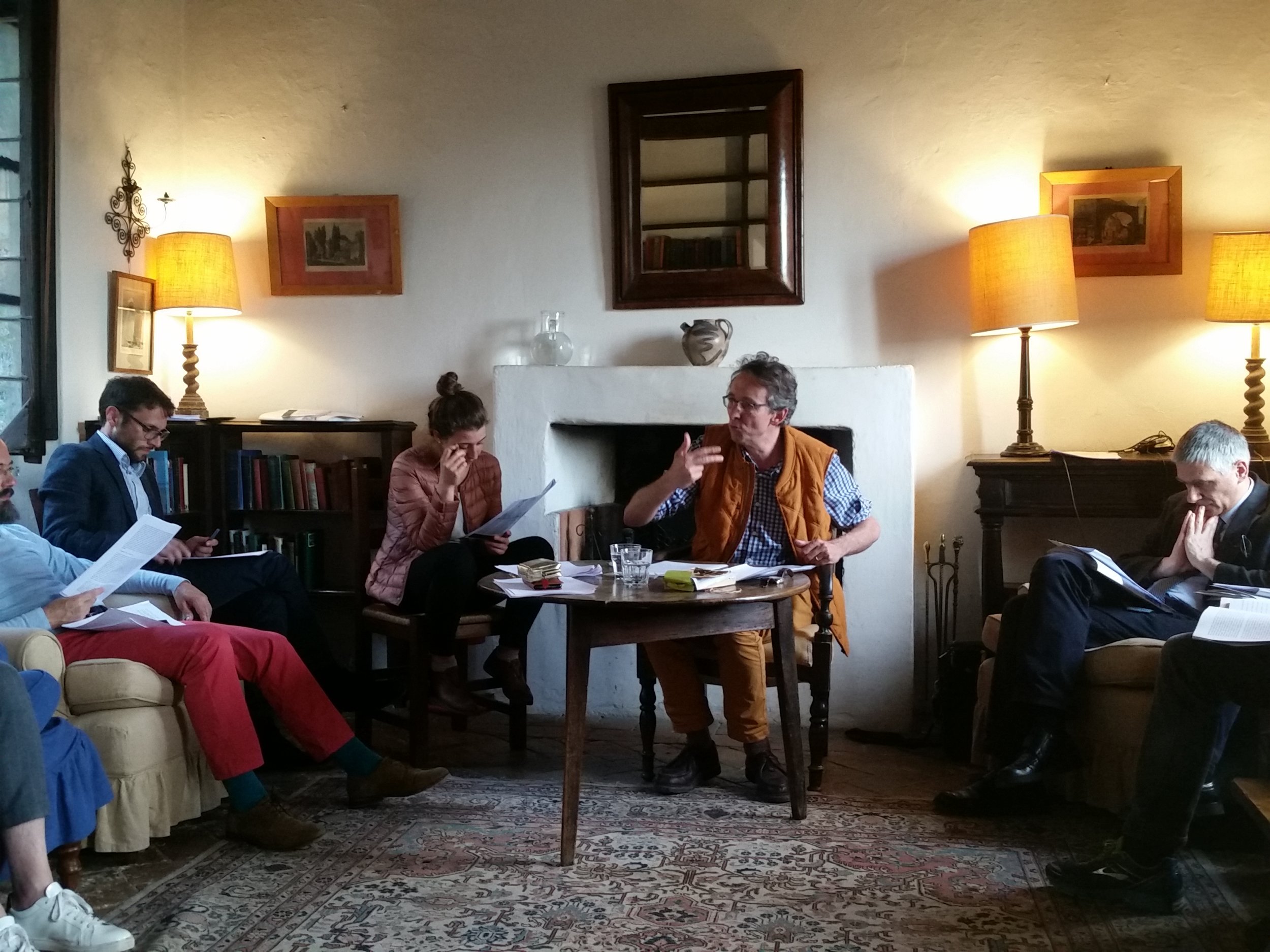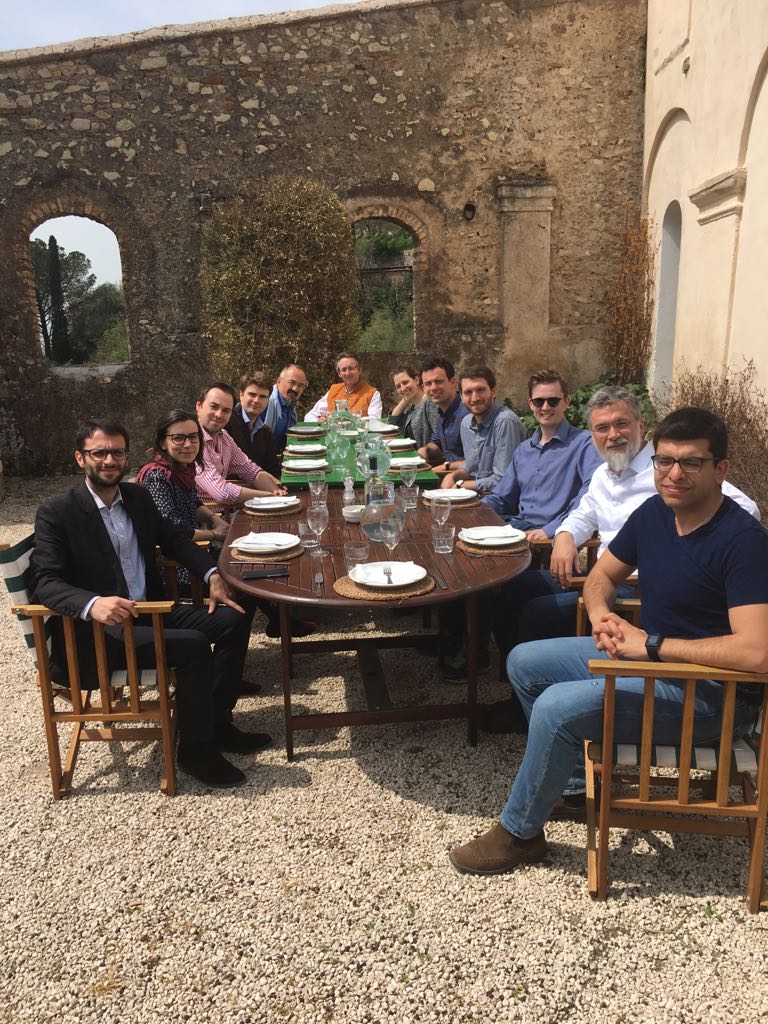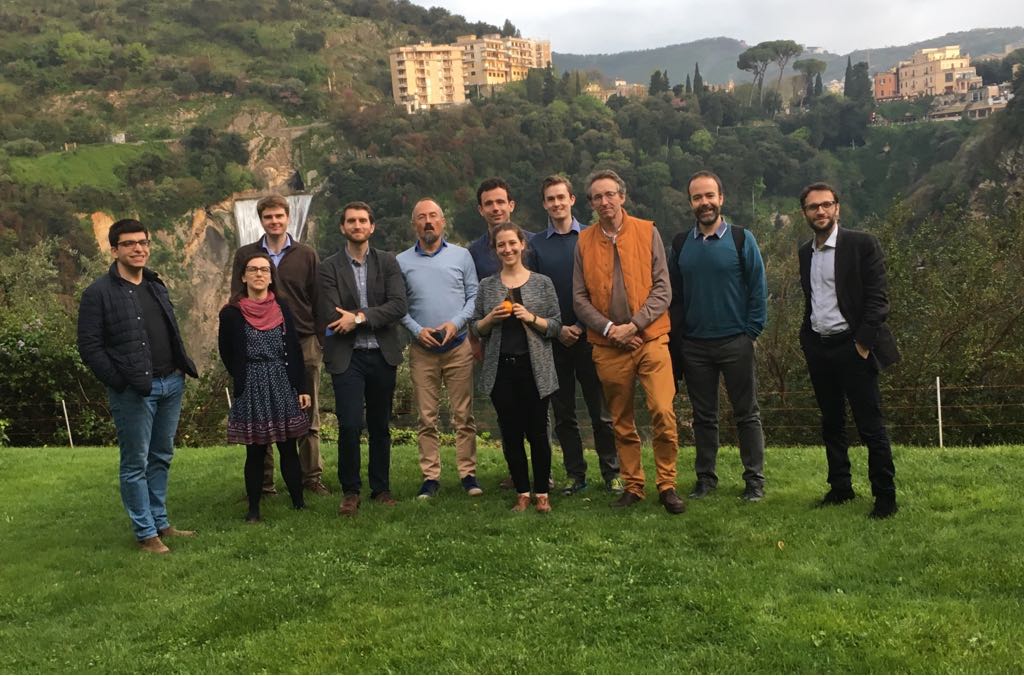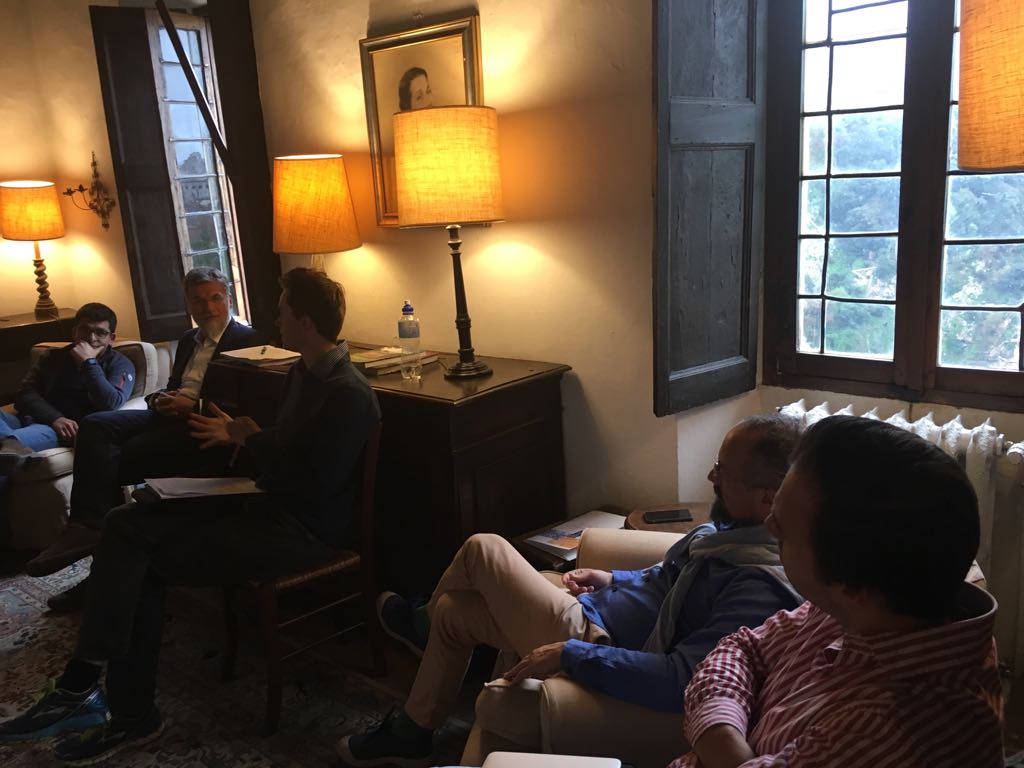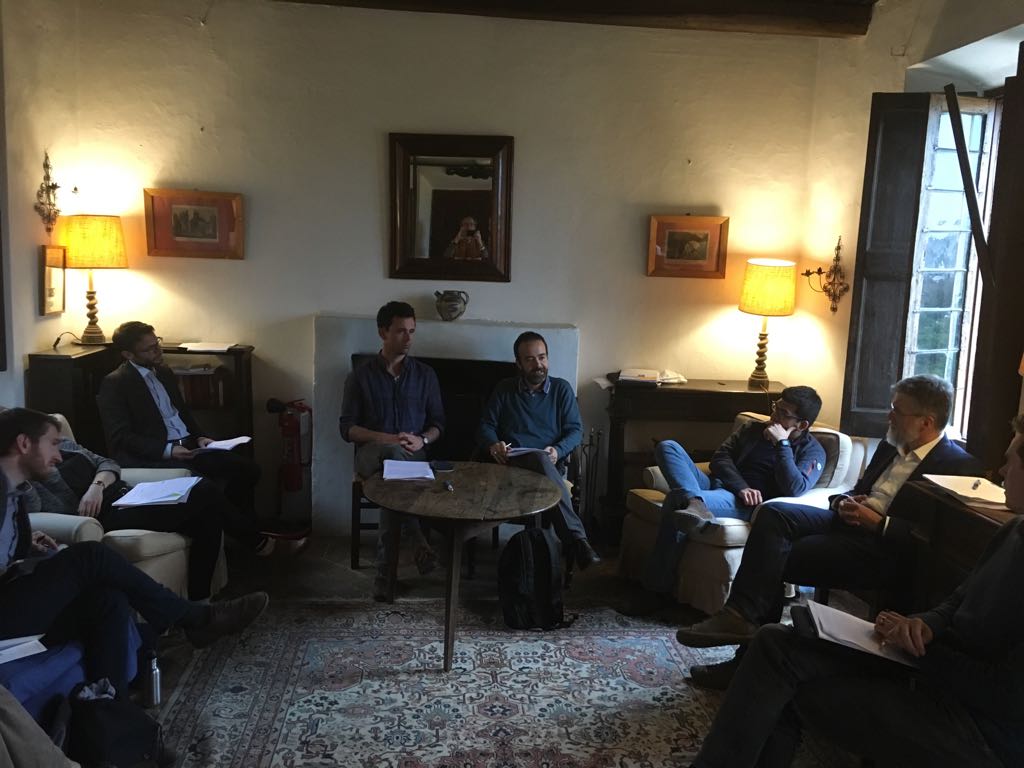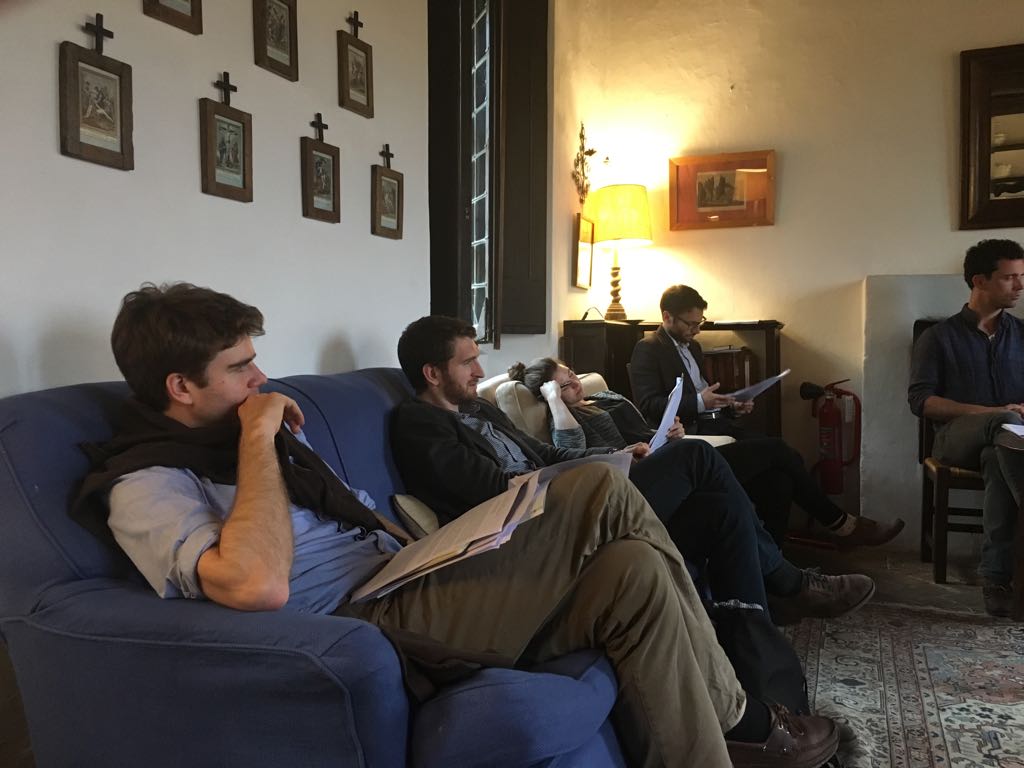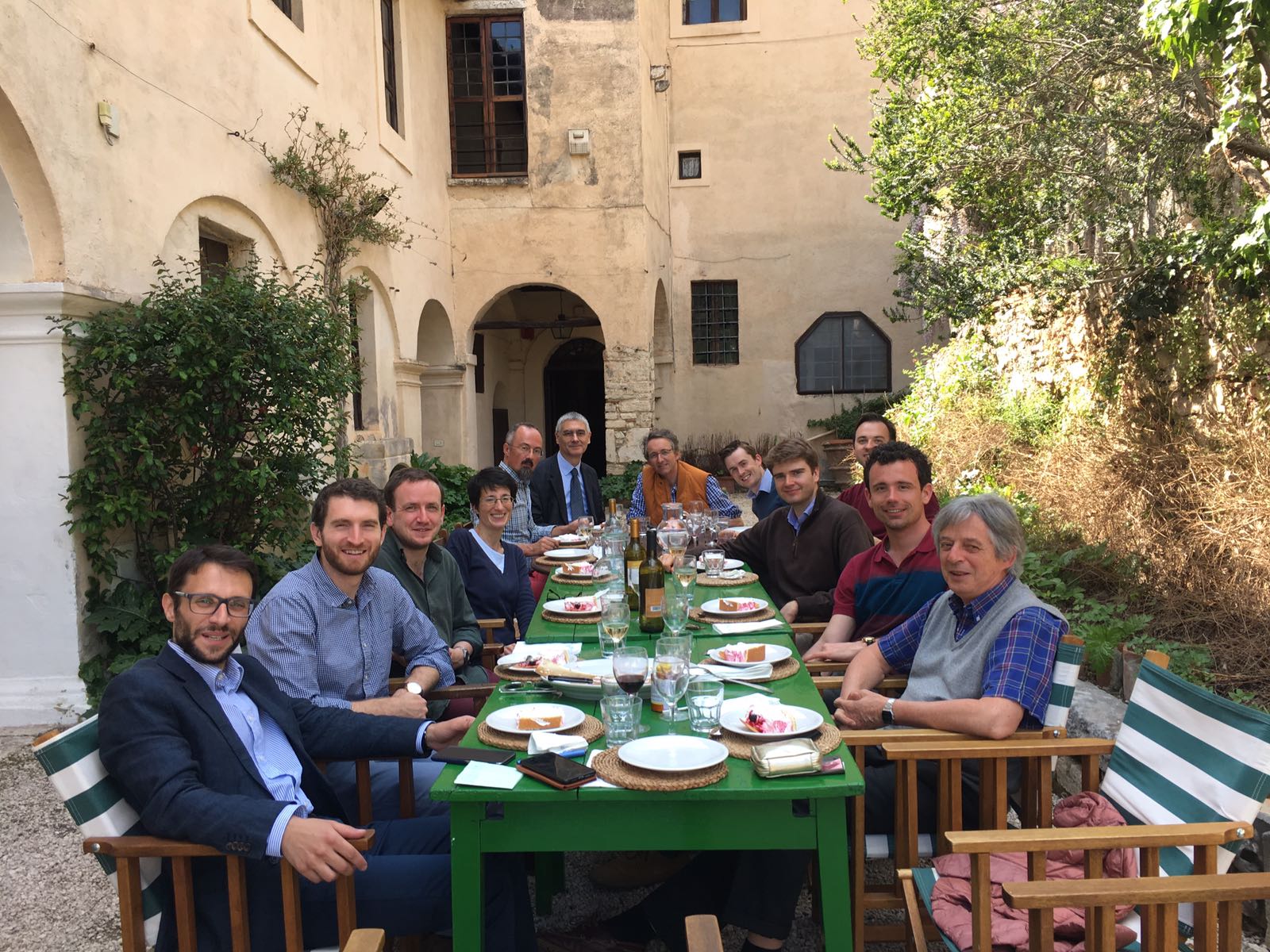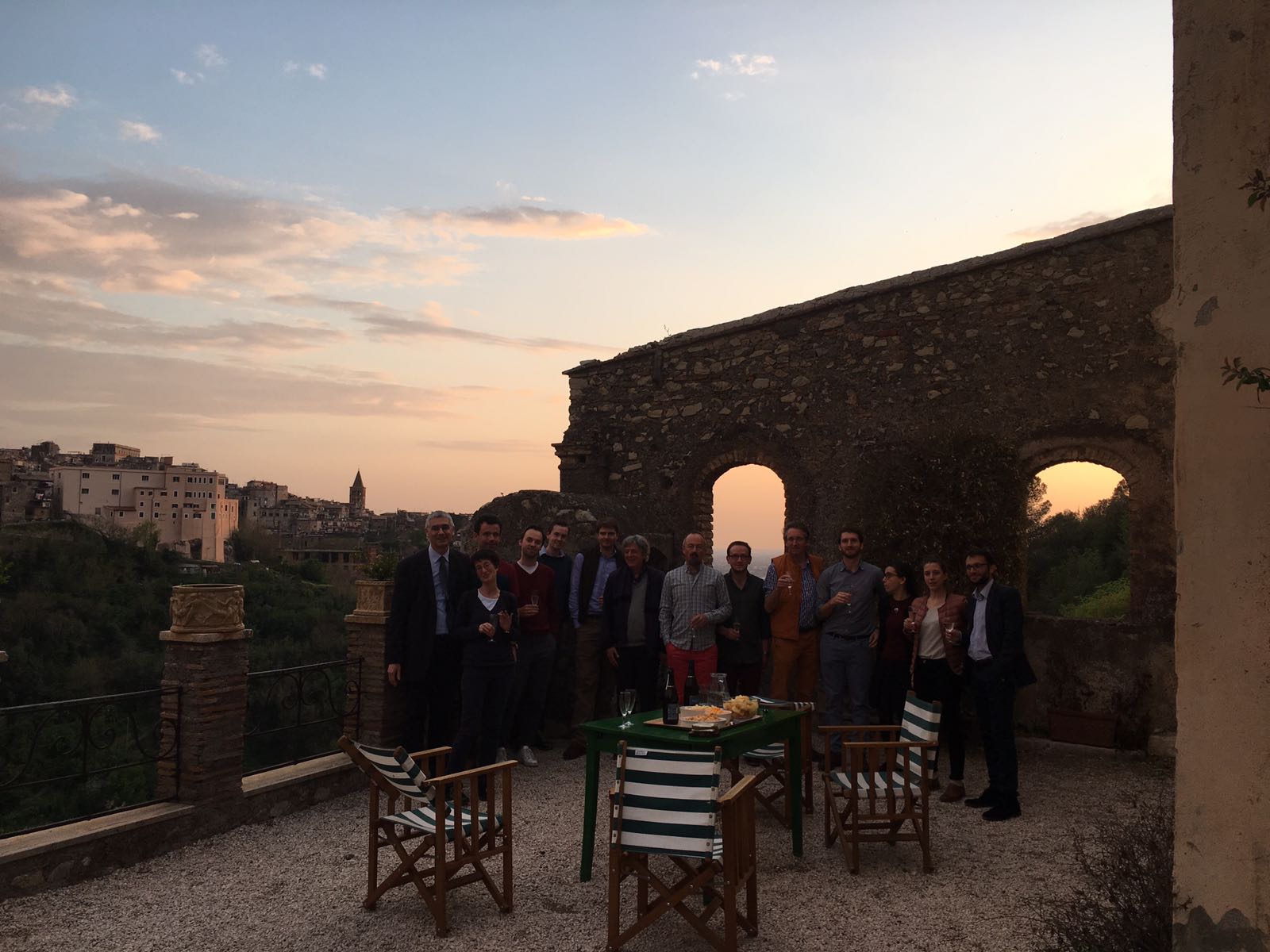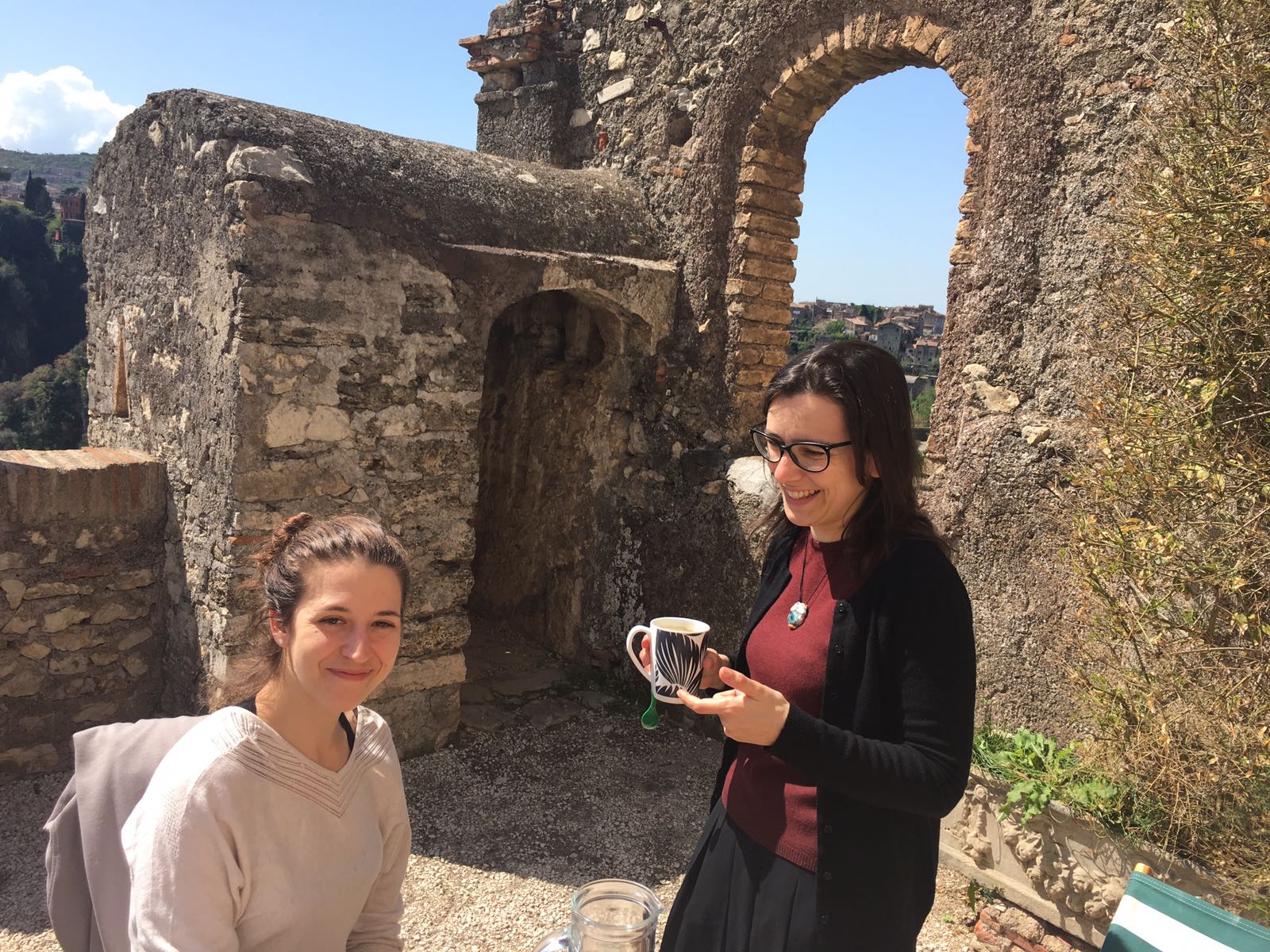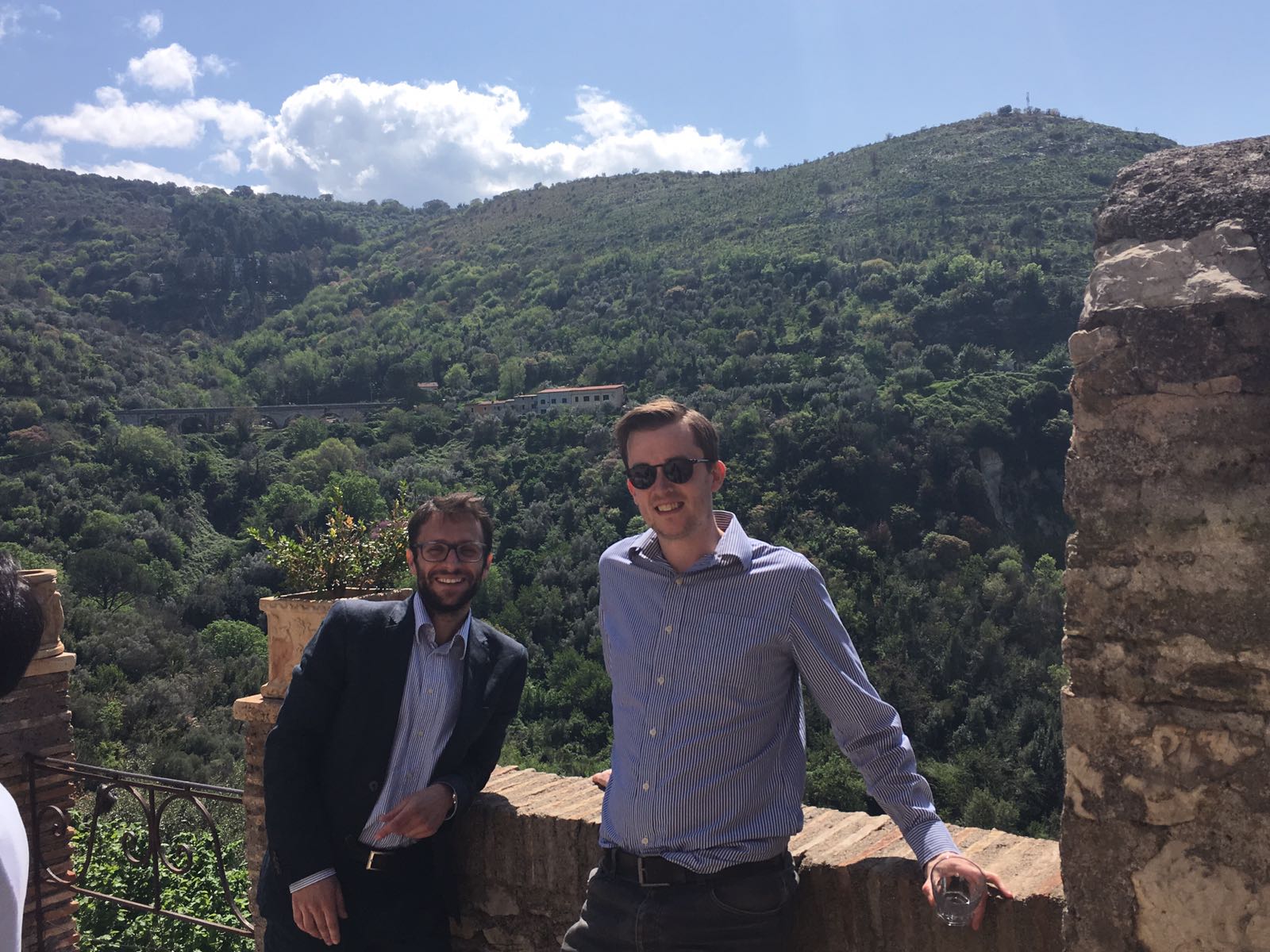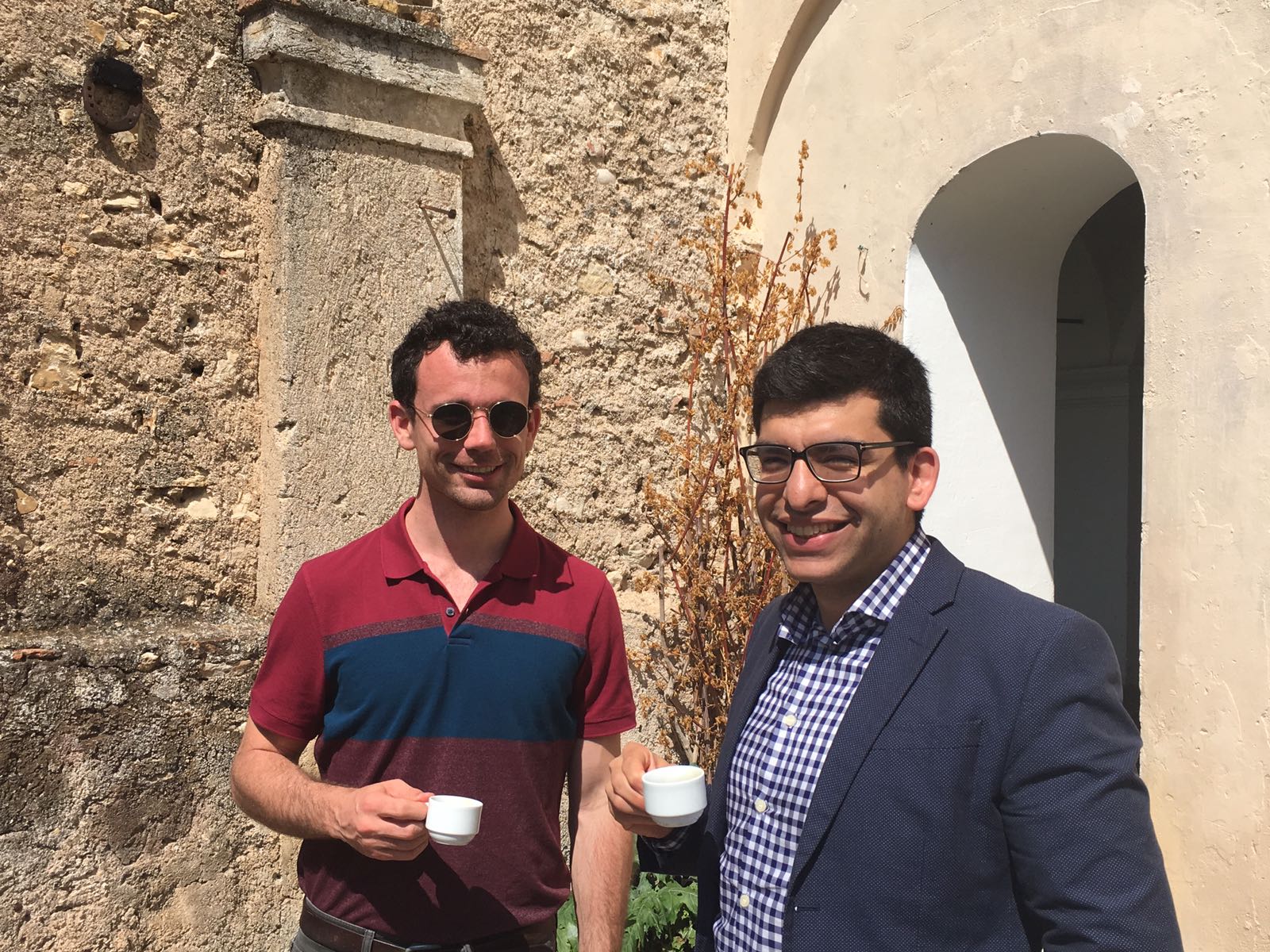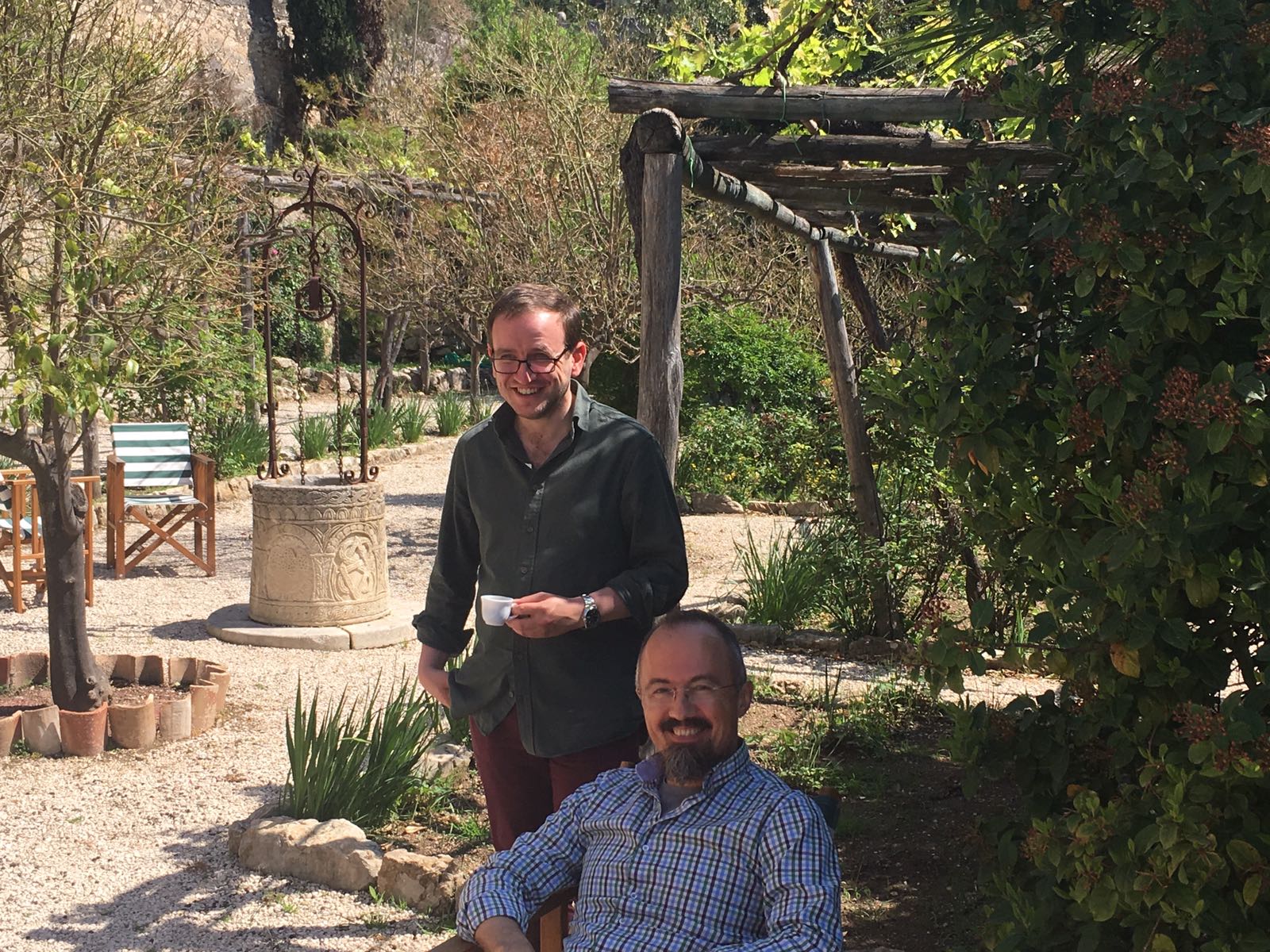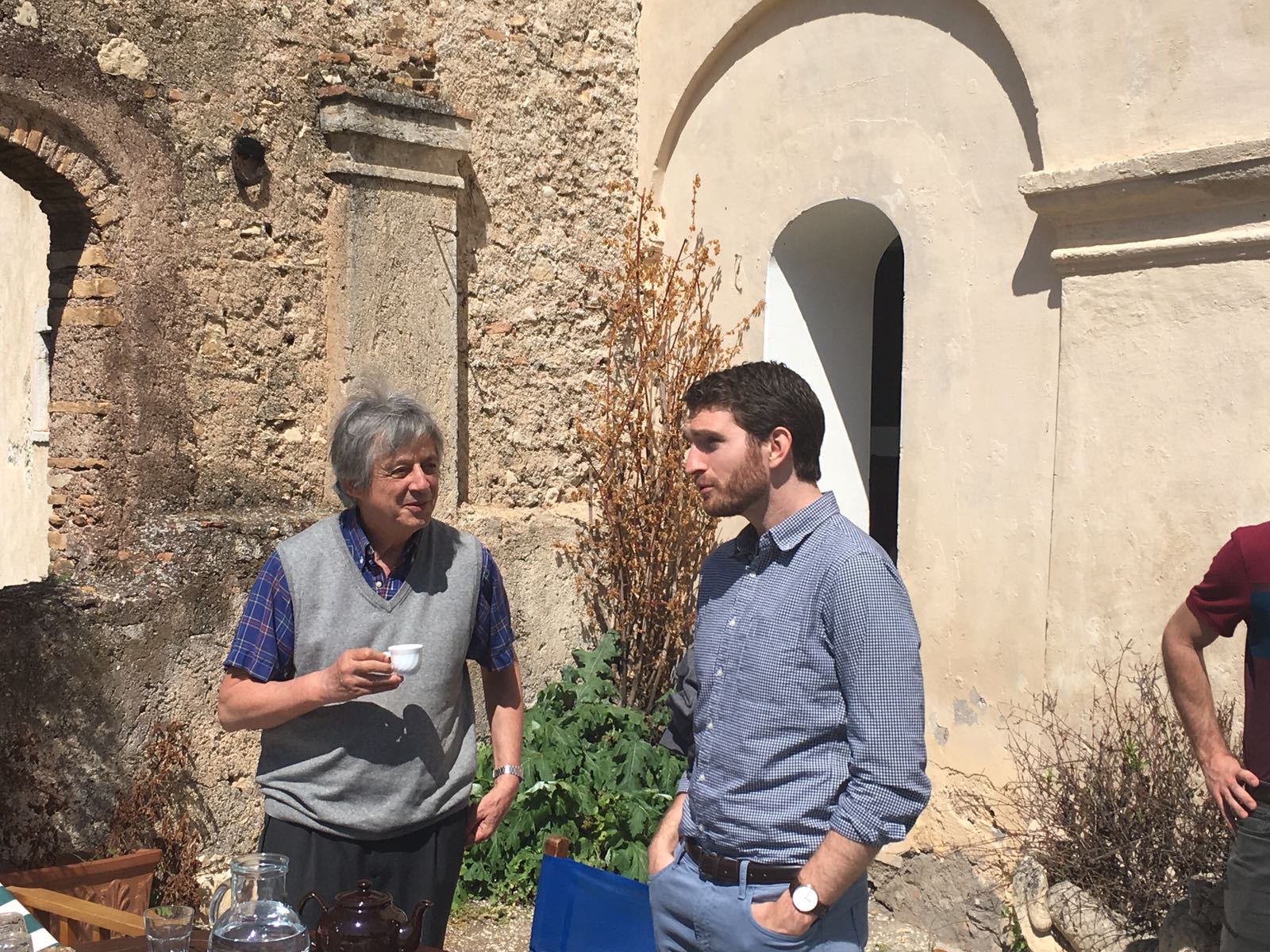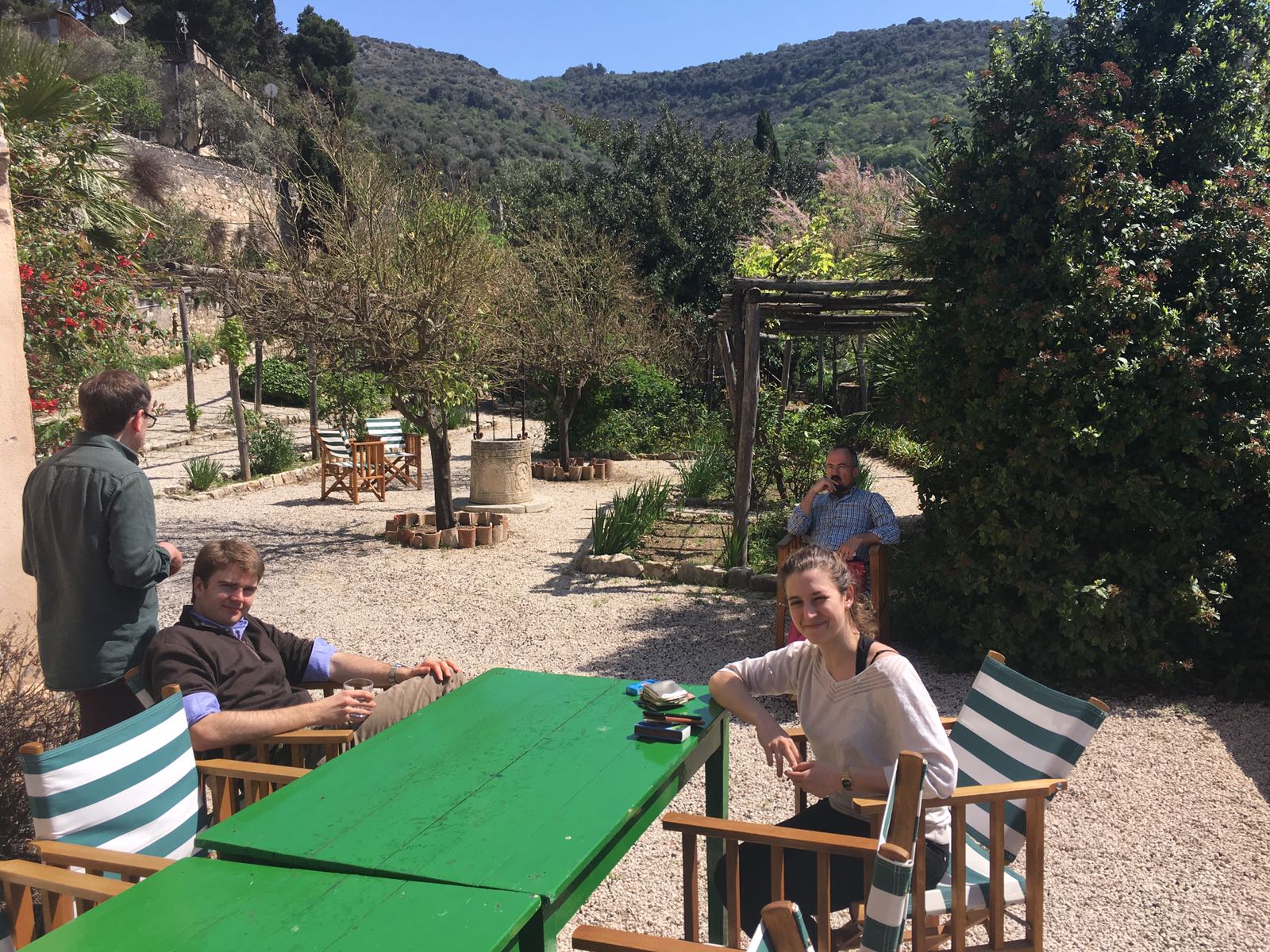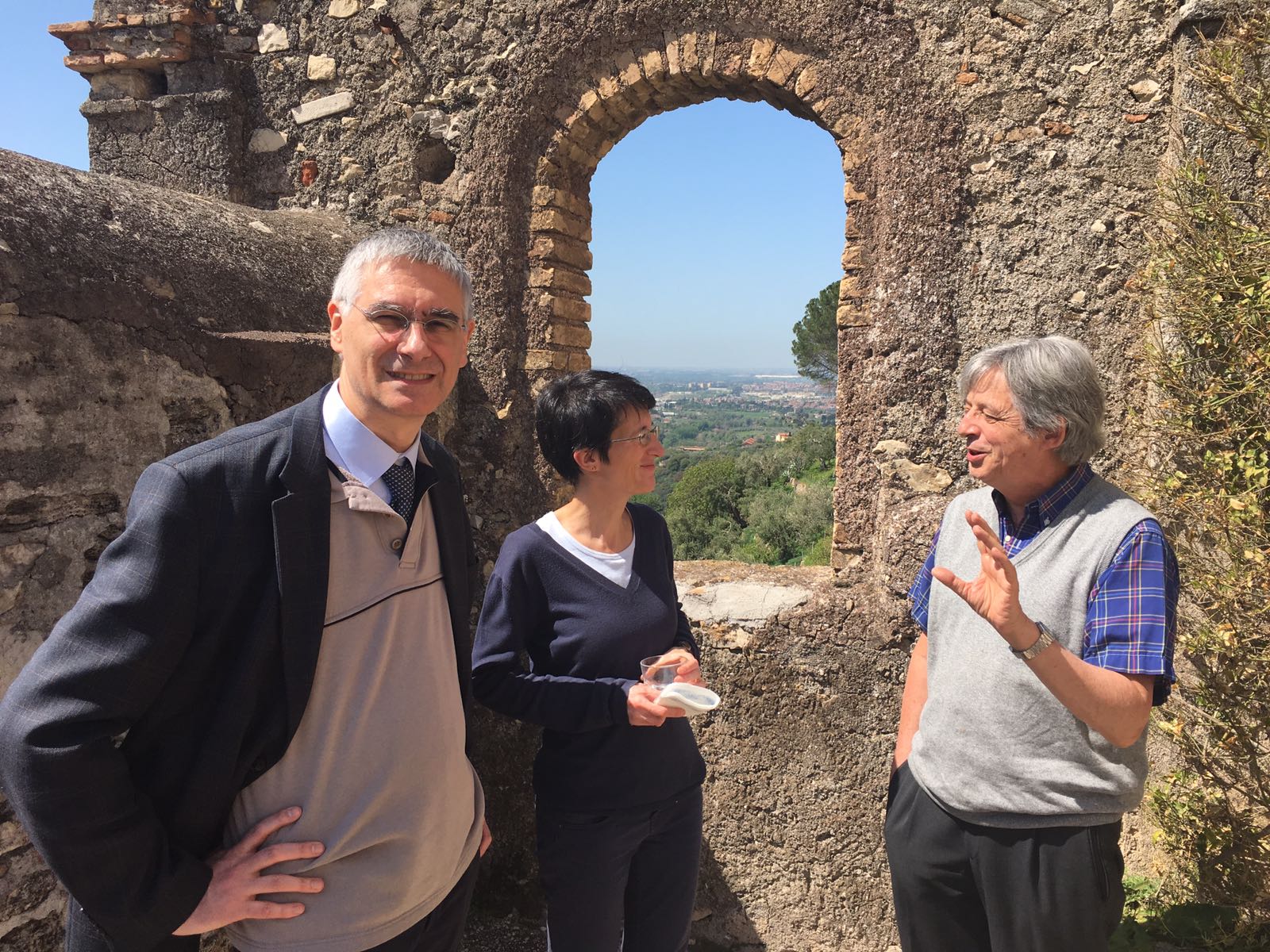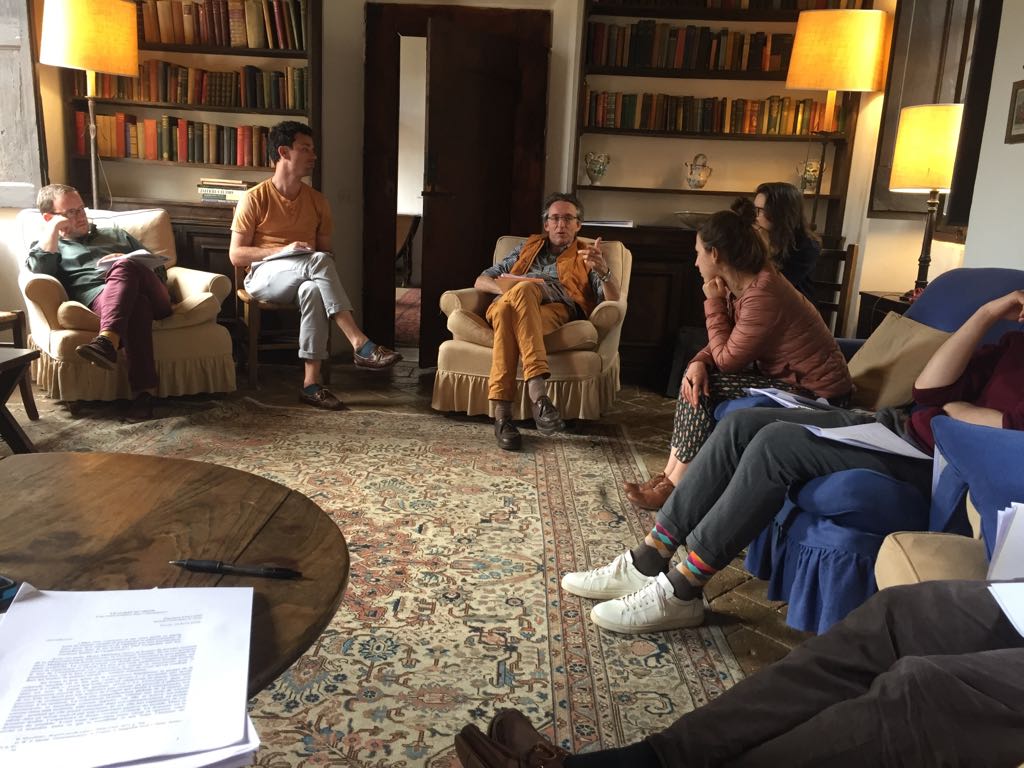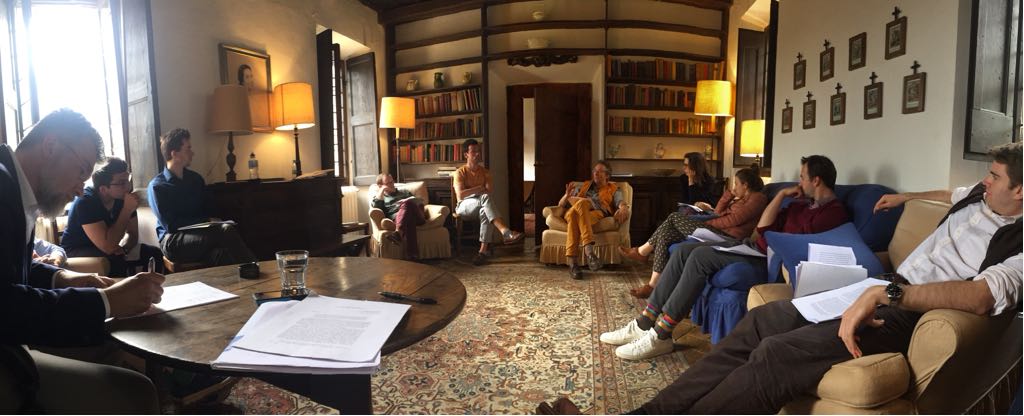The International Network in Philosophy of Religion Presents:
The Place of Phenomenology
Research Seminar: Tivoli, Italy. April 16 - 20
Under the Direction of Emmanuel Falque
Click here for the .pdf version of the Seminar Brochure
Click here for the .pdf of the french version.
A group of doctoral students, post-docs and professors based out of the Catholic University of Paris just finished an International Network in the Philosophy of Religion (INPR) seminar. Thanks to buildings conservation charity The Landmark Trust we were awarded a generous grant through the annual Landmark Futures scheme where 12 of us were able to spend four nights in the remarkable surroundings of a former monastery: Sant’Antonio in Tivoli near Rome, Italy.
Between April 16th and 20th the 12 of us conducted a doctoral research seminar with a total of 20 participants. Altogether we represented the Catholic University of Paris, the University of Cambridge, Università di Macerata, Istituto Universitario Sophia (Florence), Pontificia Università Gregoriana (Rome), The Katholieke Universiteit Leuven, Charles University (Prague), Pontificio Ateneo Sant’Anselmo (Rome), Fondazione San Carlo (Modène), LUMSA (Rome), and Università La Sapienza (Rome).
The seminar was organized by doctoral students at the Catholic University of Paris, and was led by professor Emmanuel Falque. We gathered together to share and develop our research in philosophy and phenomenology. On this particular occasion we held the notion of “Place” as a guiding theme.
A Laboratory for thought
An international symposium for the presentation and development of phenomenological research. This colloquium will focus on the idea of place and phenomenology. We will gather together to process and discuss our research through the hermeneutical lens of orientation and placement. Our research will look towards the role of place, situatedness, boundaries, and borders, both in terms of the phenomenology of experience itself, as well as the place of phenomenology in relation to other disciplines.
One aspect of modern representational thinking was the determination of place by a geometrical concept of space. Place was conflated with space and was not permitted to show itself in its own phenomenality. Phenomenology, in moving away from a philosophy of abstraction, necessarily calls for a rethinking of place: an investigation of the logic and experience of place. We aim to explore the reality of incarnated places, fields of concrete relation, and definite structures of orientation.
“The enigma of depth consists in the fact that I see things, each one in its place, precisely because they eclipse one another, and that they are rivals before my sight precisely because each one is in its own place. Their exteriority is known in their envelopment and their mutual dependence in their autonomy.”
Research and Publication
This invitation only seminar will offer the chance to both present and develop each doctoral students research by entering into a “laboratory of thought” together with a group of professors, post-doctoral students, and doctoral researchers. By engaging and presenting our various labours of research through the hermeneutic of place, we aim to collaboratively advance phenomenological research with the intention of publishing a collection of essays from the seminar under the theme of The Phenomenology of Place.
The Landmark Trust: The Story and the Place
Thanks to buildings conservation charity The Landmark Trust, we have secured lodging for four nights in the remarkable surroundings of a former monastery: Sant’Antonio in Tivoli near Rome, Italy.
Sant’Antonio will make a special place for the research seminar – nestled in one of Europe’s most inspiring landscapes, it was built over a Roman villa believed to have belonged to the poet Horace. Steep and terraced gardens, where olive trees grow, overlook Tivoli’s famous cascade. An arcaded loggia and sunny scented loggia lead to simple rooms, each with a shuttered window opening on to the valley, and mosaic floors. The Landmark Trust rescues historic buildings at risk, such as Sant’Antonio, giving them a future by letting them for self-catering stays.
Launched in autumn 2017, the Landmark Futures scheme is designed to enable ‘light bulb’ moments across a study field and for individual students. Applications are open to all higher education institutions and other qualifying organisations, and encouraged from all disciplines – with only 11 institutions successful in securing a free stay in this first year.

